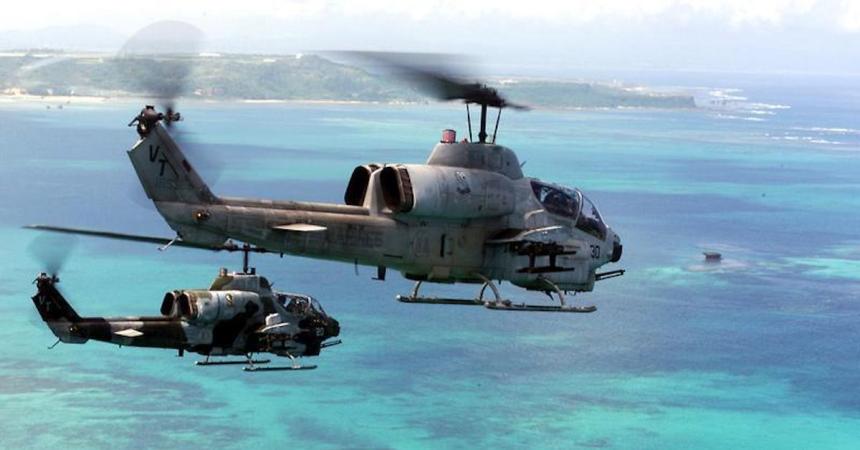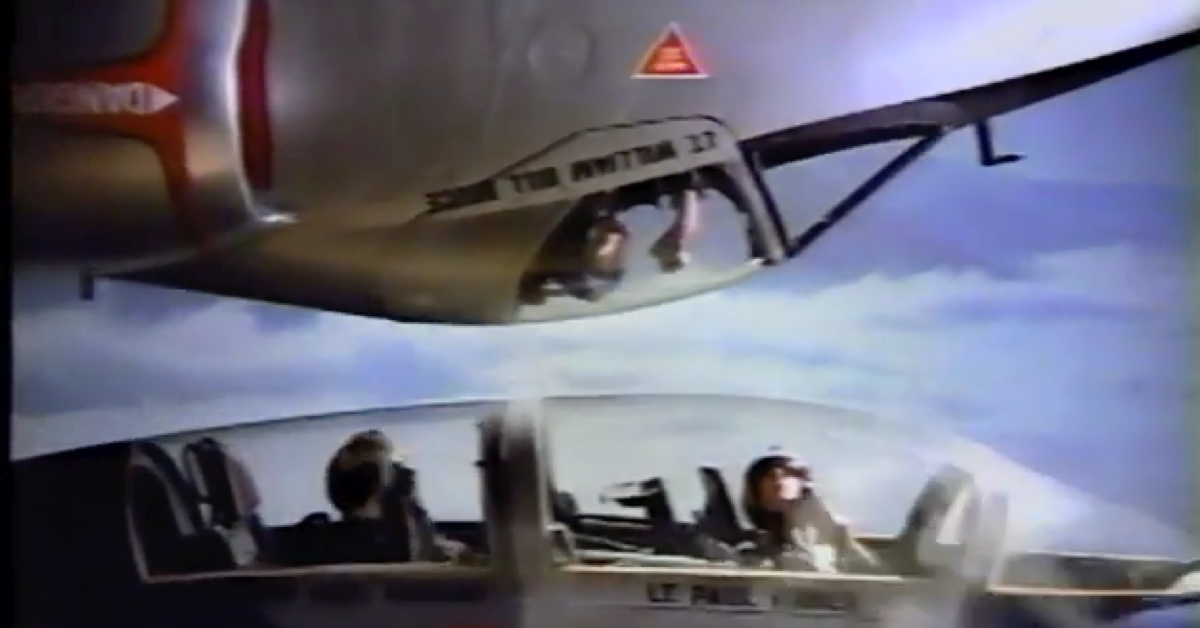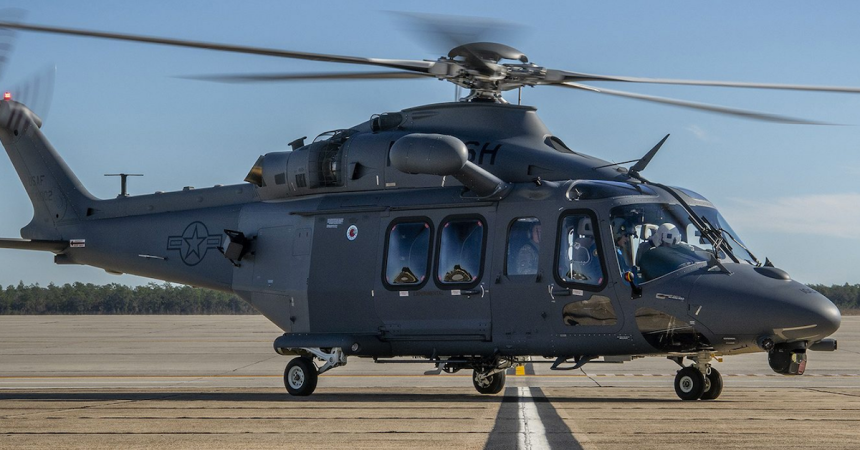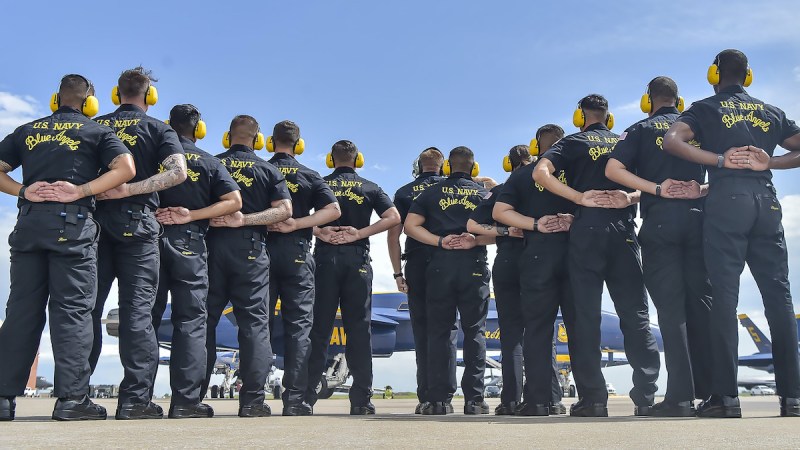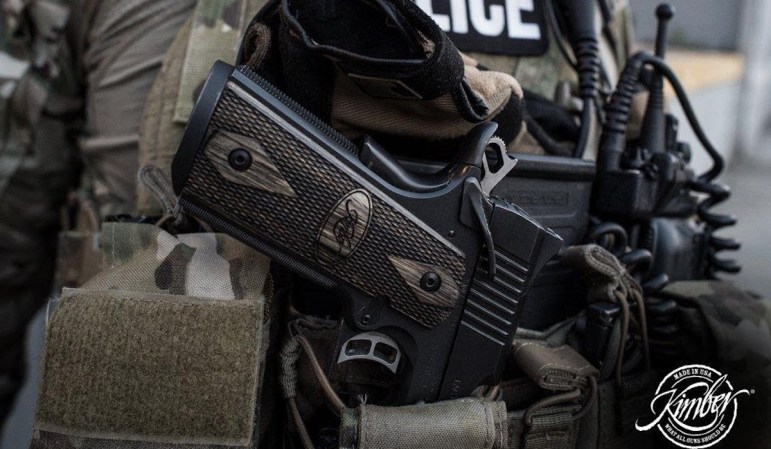It’s not uncommon in war movies to see a pilot heroically struggle to save the lives of wounded crewmen on board a damaged plane as he brings her to the carrier or base. At the end of the 1976 movie Midway, for example, Matt Garth (as played by Charlton Heston) dies as he ends up on the wrong side of this struggle and suffers a bad ramp strike. Thankfully, not all such stories are so grim. In a recent incident, then-Capt. Kim “Killer Chick” Campbell successfully brought a shot-up A-10 back to base during Operation Iraqi Freedom.
But here’s something you may not know: These heroic actions don’t just take place during times of war. In peacetime, there are similar emergencies that force a crew to bring a damaged plane back to base – and it requires some heroic flying. One incident that our loyal readers know about involved an AV-8B Harrier with a nose gear failure. Capt. William Mahoney received the Air Medal in 2015 for pulling off the landing.

Well, the crew of a Navy EA-18G Growler electronic warfare aircraft recently pulled off a much more impressive feat and were recognized with the Air Medal for their actions. Lieutenants Jason Hirzel and Sean Noronha of Air Test and Evaluation Squadron Nine were flying their Growler from Whidbey Island Naval Air Station to the Navy’s test facility at China Lake on Jan. 29, 2018. Suddenly, their environmental control systems failed at 25,000 feet. They were blinder than proverbial bats after a mist filled their cockpit and temperature dropped to 30 below zero, causing the instruments and canopy to ice over.

“This is a situation that absolutely would have justified ejection from the aircraft,” a Navy spokesman said. “But the aircrew persevered through the extreme conditions and risked their lives to ensure a safe recovery of the aircraft.”
This amazing feat was accomplished by using a Garmin watch and a big assist from the ground control team at Whidbey Island.
The two crewmen suffered minor injuries, including frostbite. One has returned to flight status, the other is expected to do so soon.







